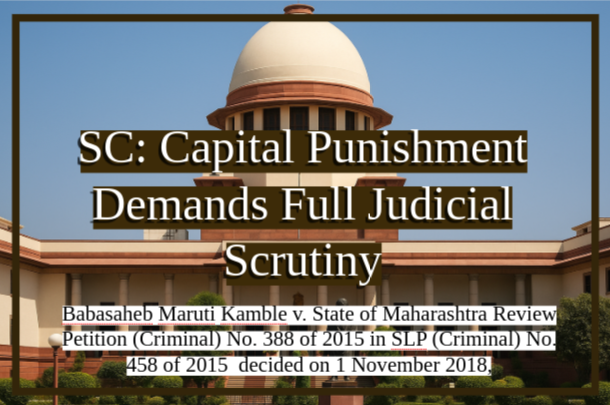Vague allegations cannot sustain prosecution of in-laws under 498A, rules SC
- M.R Mishra

- Sep 30, 2025
- 2 min read
In Sanjay D. Jain & Ors. v. State of Maharashtra & Ors. (2025 INSC 1168), the Supreme Court was faced with the question of whether vague and omnibus allegations in a matrimonial dispute could justify continuation of criminal proceedings against in-laws under Sections 498-A, 377, and 506 IPC.

The complainant, married in 2021, alleged consistent dowry demands and cruelty, while also claiming her husband subjected her to unnatural sexual acts. However, the FIR and subsequent complaint contained only general references against the in-laws, with specific allegations of Section 377 and 506 confined to the husband.
The appellants, being the father-in-law, mother-in-law, and sister-in-law, sought quashing of the FIR under Section 482 CrPC after the High Court refused their plea.
The Supreme Court, applying the principles in State of Haryana v. Bhajan Lal and its recent decision in Digambar v. State of Maharashtra, held that allegations must disclose the essential ingredients of the offence. General or vague statements, unaccompanied by specific acts of cruelty or harassment, cannot form the basis of prosecution under Section 498-A IPC.
The Court further emphasized that Section 498-A contemplates conduct grave enough to endanger life, limb, or mental health, or harassment for unlawful dowry demands, neither of which were properly articulated against the in-laws in the FIR.

As to Sections 377 and 506 IPC, the Court clarified that the allegations squarely implicated only the husband, not his family members.
Continuation of proceedings against the in-laws would therefore amount to an abuse of process. Accordingly, the Supreme Court quashed the FIR and all consequential proceedings against the appellants, while leaving the prosecution against the husband unaffected.
This ruling reiterates judicial caution against mechanically prosecuting relatives of the husband in matrimonial disputes.
While the law must protect genuine victims of dowry harassment and cruelty, courts have repeatedly cautioned that vague, omnibus allegations cannot be weaponized to implicate the extended family.

The decision reaffirms that Section 482 CrPC remains a vital safeguard against misuse of criminal law in matrimonial conflicts.







Comments